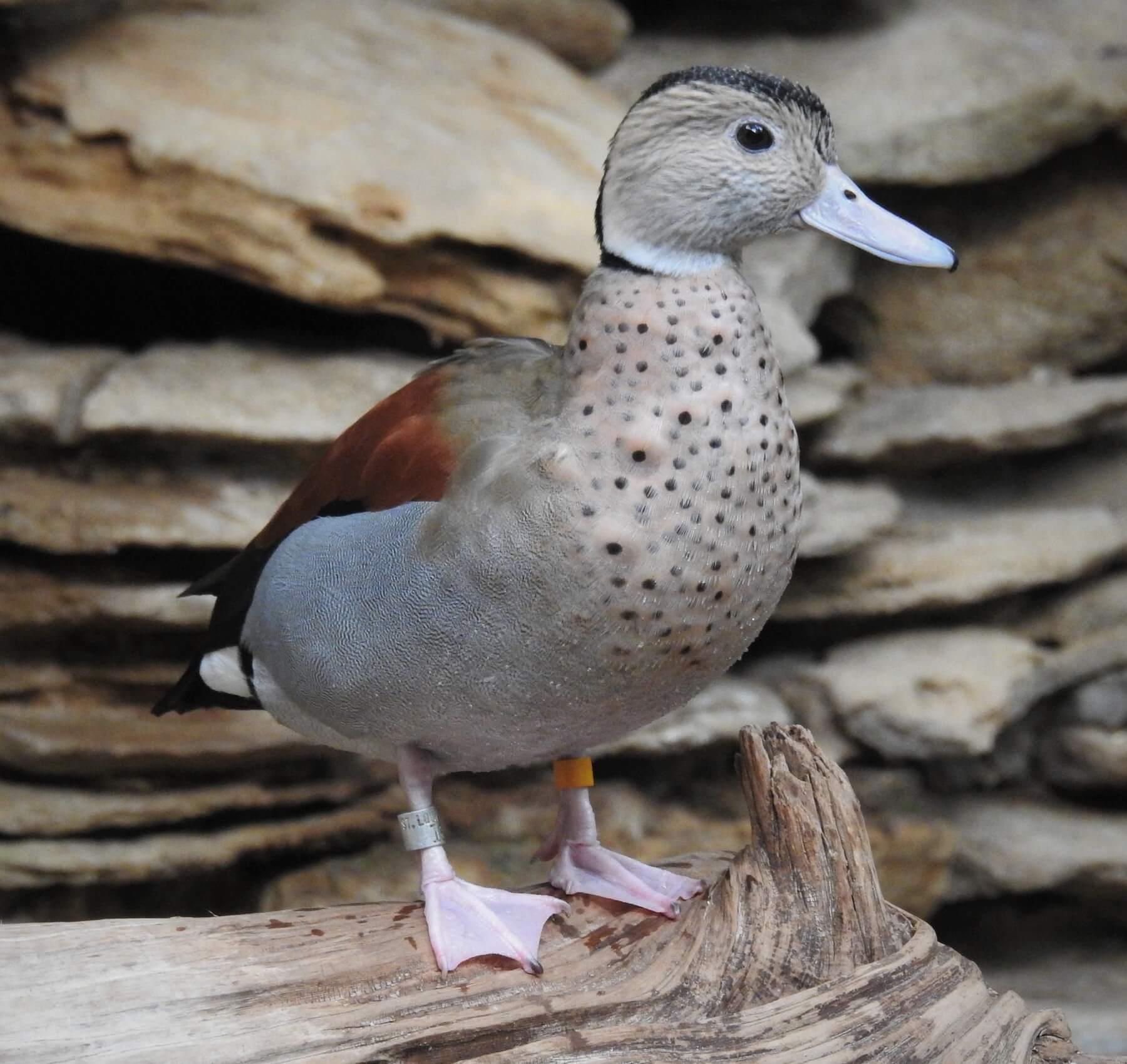
Ringed Teal
Callonetta leucophrys
Did you know?
- Ringed teals are a part of the Anatidae family, which they share with geese, swans, and other ducks.
- They live near fresh water habitats in central South America.
- They are one of the smallest ducks in the world.
- They like to perch in trees.
- A female will lay six to eleven eggs in one clutch.
Young and Family
Ringed teals mating pairs grow strong bonds. Sometimes they mate for life. A female will lay eggs in a tree cavity or similar protected space. Both the male and the female incubate the eggs and are with or near the nest until the eggs hatch.
Dabbling and Perching
Similarly to other teals, ringed teals are dabblers. This means they submerge their heads and chests to pull up vegetation to the surface of the water. They do this when looking for their next meal. However, unlike many ducks, ringed teals are also perching ducks. This relates to their habit of perching up in trees. Their uniquely small size (an adult weighs about 12 ounces) allows them to take advantage of branches that many ducks would be too heavy to use.
Threat Level
- Unknown
- Common
- Near Threatened
- Threatened
- Endangered
- Critically Endangered
- Extinct in the Wild
Common
The ringed teal is widespread and abundant.
Range
Southern Bolivia, Paraguay, Southwestern Brazil, and parts of Argentina and Uruguay
Habitat
Wetlands and ponds
we care about ringed teals
The Saint Louis Zoo supports marbled teals at the Cypress Swamp at the Zoo. Learn more about how we are helping wildlife around the world.
Find this animal in Historic Hill

SAINT LOUIS ZOO ZONE
Historic Hill
Historic Hill is a lovely stroll through one of the oldest parts of the Saint Louis Zoo. From the 1904 World’s Fair Flight Cage to the Spanish architectural flavor of the 1920s in the Bird House, Primate House and Herpetarium to the finishing touches of our thoroughly modern exhibits, this area of the Zoo has a unique ambiance and a nostalgic history that make it a great destination.

